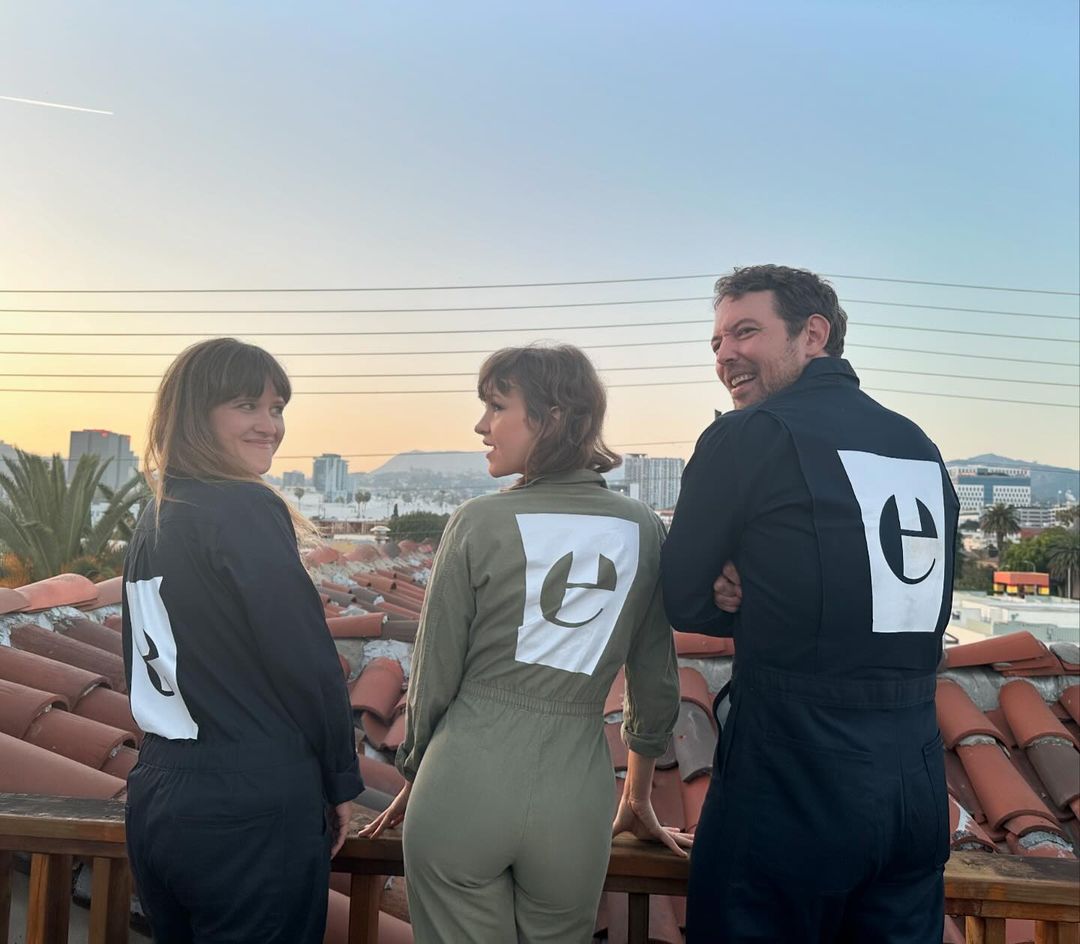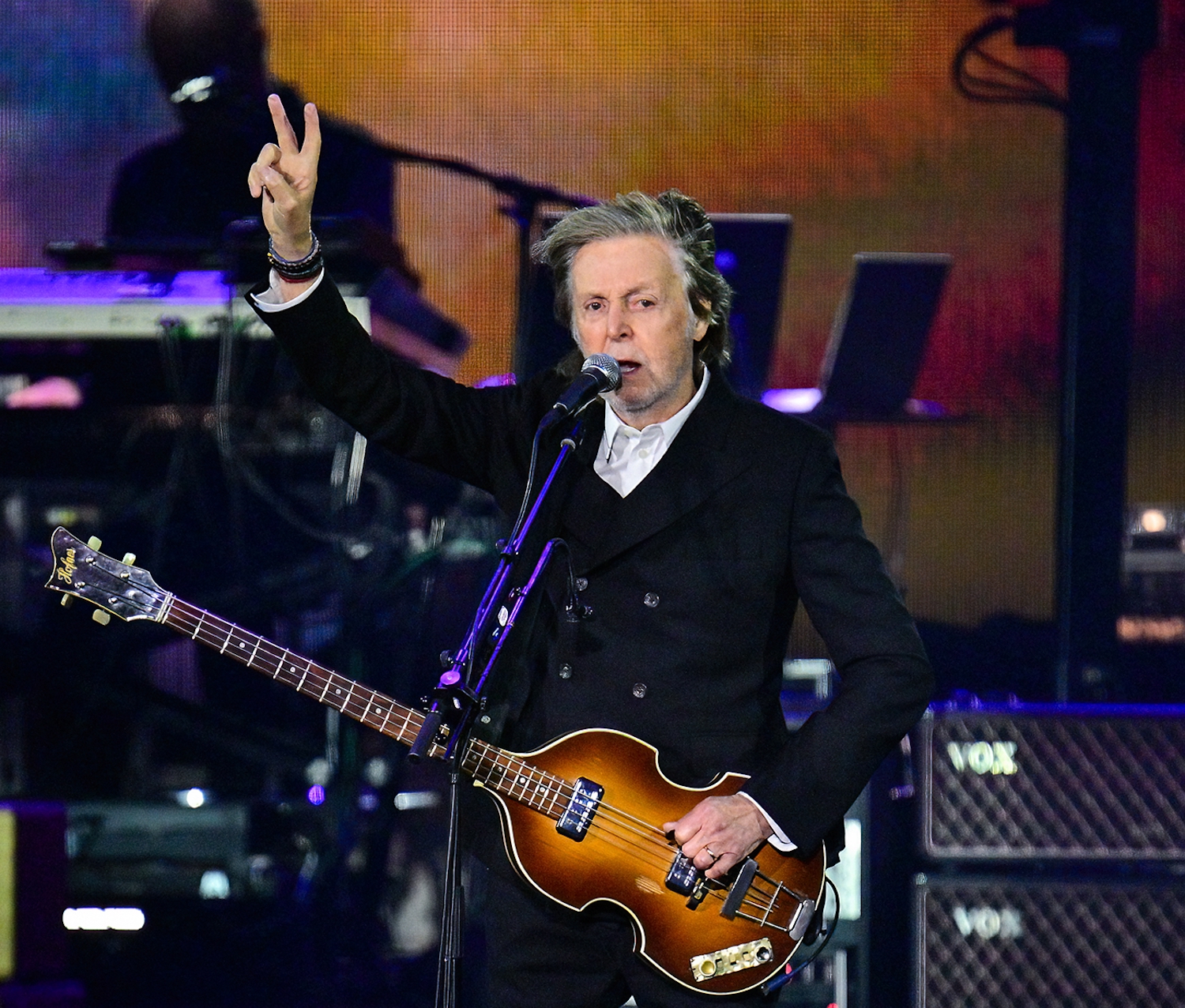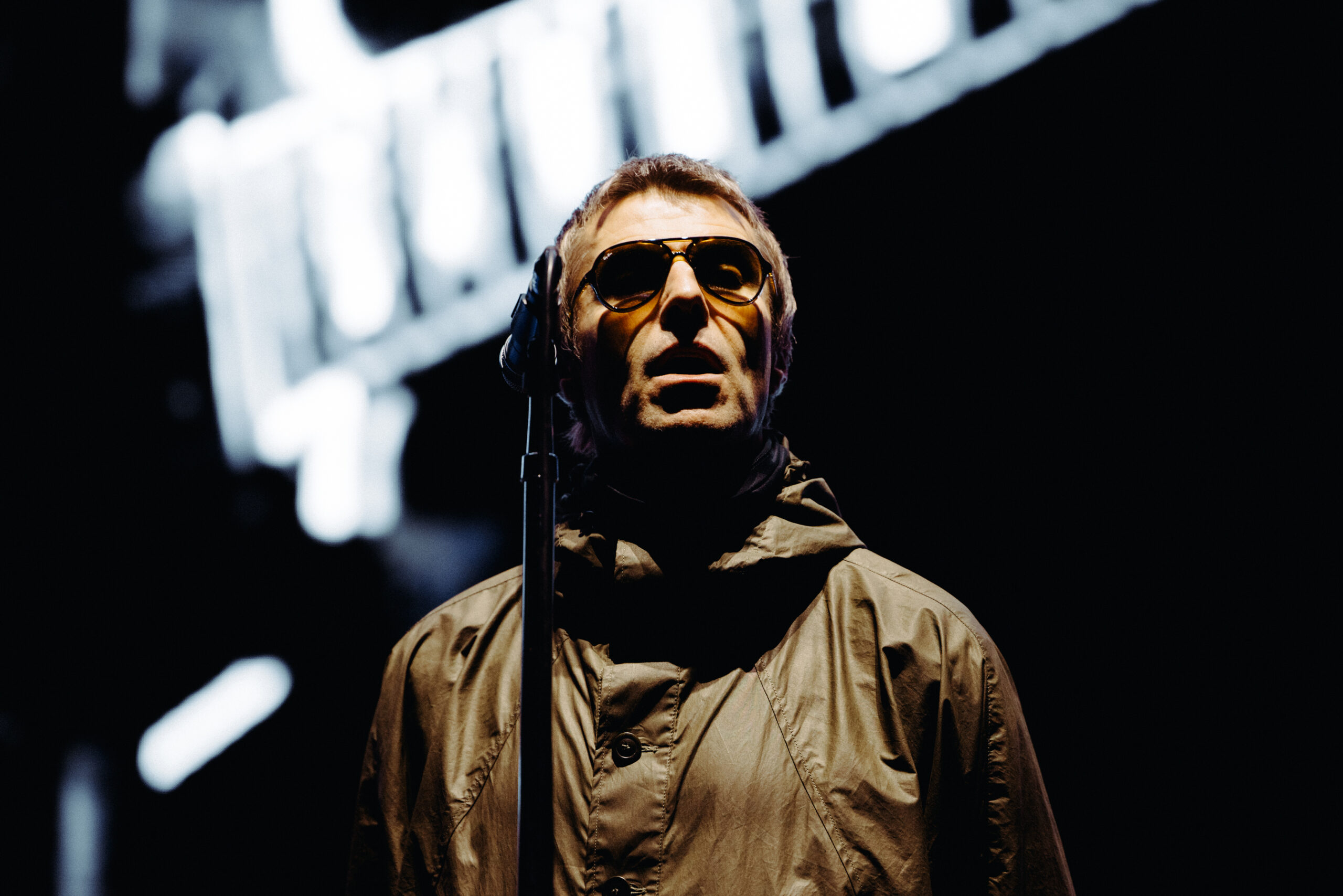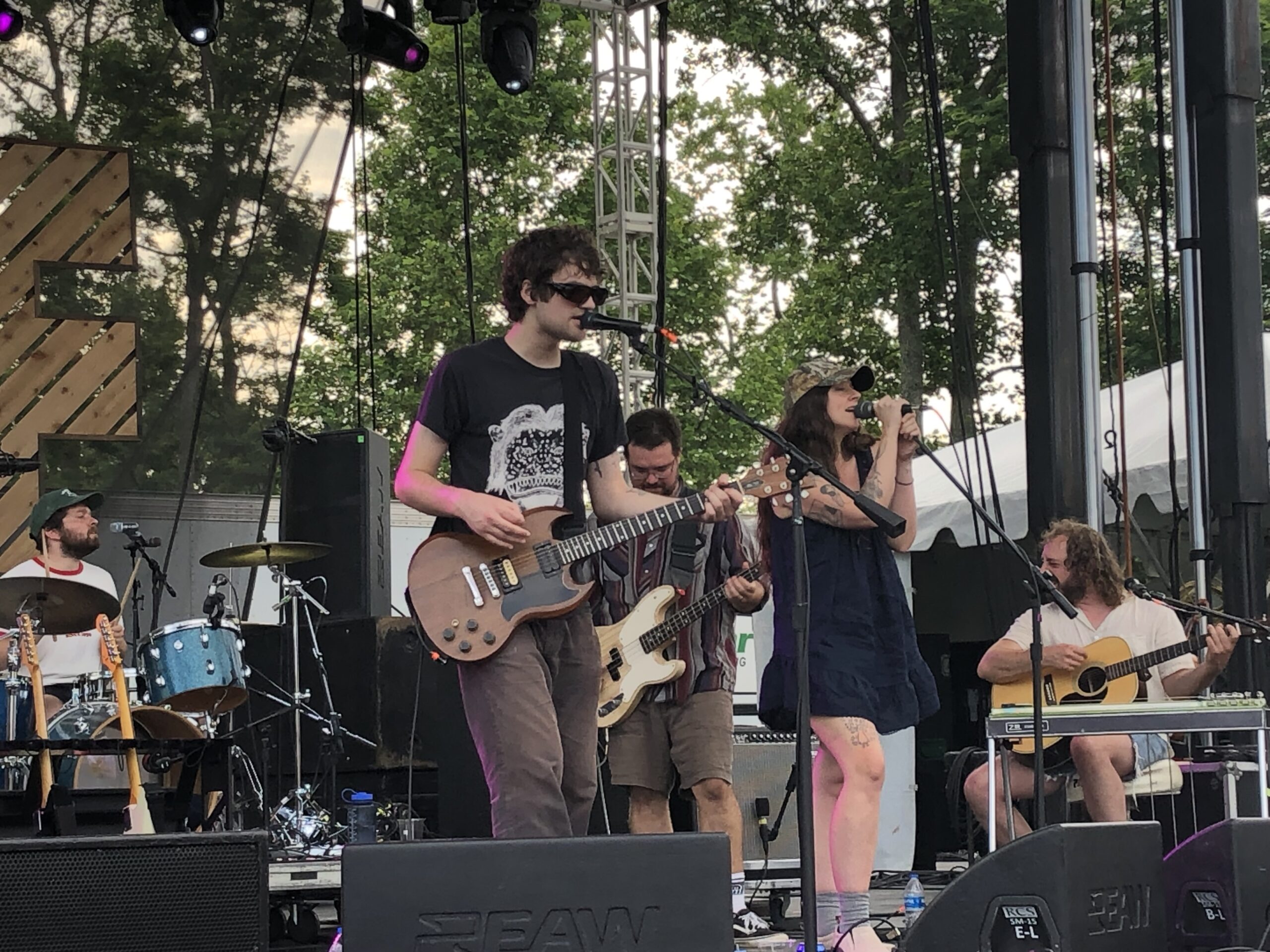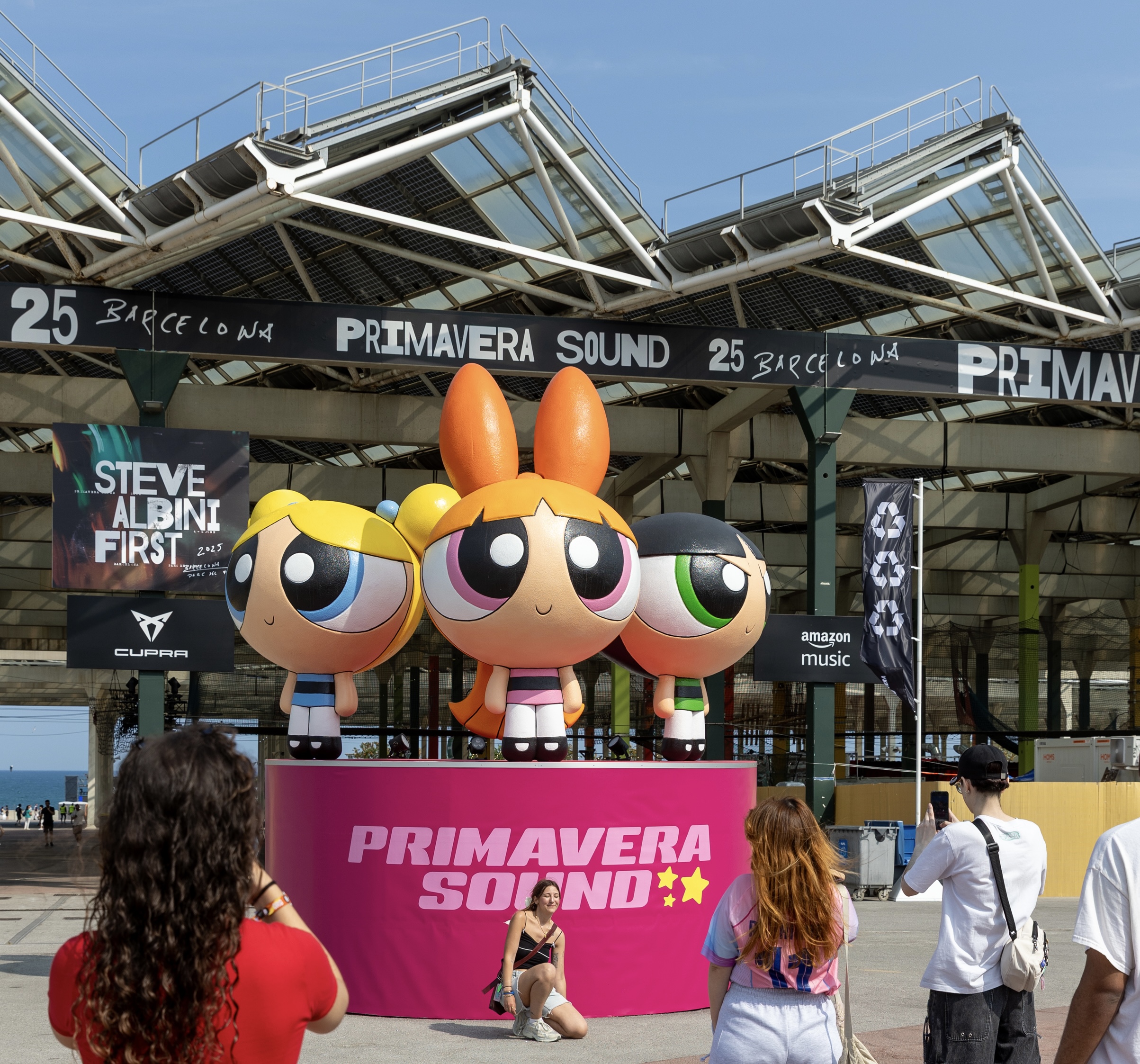I always knew that the person whose name I'd call at the end of it all would be another Joanna Newsom superfan. Besides being into shit like elves and throwing ass once a year at a Ren Faire, what Newsom fans seem to have in common is a plant-like heart and an ability to see life from a falling pilot's vantage point. In Newsom's music, we hear someone prey to the most astounding human impulses. We hear someone so desperately trying to create something living, breathing, eternal from the inert universe. We hear someone throttling against death. We hear life sounded back to itself. I knew my future wife would get it.
I met her a few years ago, of course, in a Joanna Newsom fan group. Since then, we've been to three Newsom shows together - the first was her secret opening set for Fleet Foxes last year, the second at her first festival set in several years earlier this May, the third at her final show of her Hollywood Cemetery residency last month.
Throughout late May, Newsom played a string of shows at the 150 capacity Masonic Lodge. She played a mix of old songs, covers (including Kermit The Frog deep cuts), and around 50 minutes worth of new material. My wife, who is one of the only people in the world who can teach me new things about Newsom and provide insights I wouldn't have thought of, felt like a good person to help me out with a review of her final night. Here we are in dialogue. —Emma Madden
EMMA: First of all, I was highly disturbed when I saw Joanna walk out in pants.
HANNAH: An army green jumpsuit!
EMMA: I was genuinely horrified. I thought it was some athleisure wear or something. Turns out it had an Electrical Audio logo printed on the back — several people in the crowd, who didn't recognize that it was a tribute to Steve Albini, assumed it was the logo for a new album. That sort of cast quite a bit of anxiety over the night. But alas, no album announcement.
HANNAH: I didn't think she'd make such a Taylor Swift kind of move anyway.
EMMA: A fancy crowd was in attendance. Beck. John C Reilly. Caroline Polachek. Meanwhile 150 of us plebeians sat downstairs as the crew brought them bottles of wine in the balcony. I usually try not to pay this stuff too much mind else it'll drive me crazy, but the class divide felt stark in such a small venue. I felt a very subtle sense of unease when I first saw her gold-plated, highly ornamented harp, which, to be honest, doesn't usually bother me. I wish everyone had access to the instruments of heaven, to have the vocabulary to articulate it. It's a shame that such an aerial view of the world, the ability to not be stuck in the marshes of it, is the domain of the rich and comfortable.
To be a bad Marxist here for a sec, I do believe, though, that only Joanna could make the quality of music she does. If everyone in the world had the same wealth and access she did, I do think there'd still be only one Joanna Newsom. But, if you're rich and making music, please just at least strive for those heights. Anyway, I felt unable to take her new song "Home Economics" - a song which sees her trying to reconcile the disconnect between her plush, insular life at home and the war-stricken world outside - in very good faith tonight. In early interviews she talked quite a lot about others' suffering taking a toll on her heart. She said she didn't know how to cope with war, world hunger. She was always told, "Don't worry, we'll be okay."
HANNAH: It's funny that we both had the same thought/feeling during "Home Economics." I felt a little pang of envy and bitterness hearing her sing about her saturated, overly comfortable life - I pictured the mansion, meetings with financial advisors; imagined lessons about money being taught to children too young to know what it is. The song itself speaks a bit about wealth disparity and the "guilt" of privilege, but like you said, I found it more difficult than usual to separate these ideas from the shiny, expensive fame sat right behind us, which ranged from generous and smiling to eerily arrogant.
It made me think of the gorgeous line from Newsom's newest masterpiece "Rovenshere," directed to her children, or the children of the world: "You go on and I will stay here." Joanna's ability to cope with mortality and fathom eternity, which she explored with heartbreaking bravery throughout Divers and in songs like "Sawdust And Diamonds," is made more profound now that she's not imagining herself at the end of the line, the caboose of life on earth, thundering toward death; there are children who will take the reins for us once we're gone, so long as we teach them how to. That responsibility is at the forefront of some of her new music. In "Home Economics," this raises not only the question of who will carry on without us, but how we will teach them to manage the assets we leave behind, the Earth itself included.
EMMA: I love that. For me, if there's a single thread across Joanna's work it's in her attempt to finitize the infinite, sustain the greatest joys of our life, to build sandcastles that stand up against the tide. Can't that describe all human art? Yeah, but Joanna seems to have a greater sensitivity to it than just about any other living artist. In various ways the main question of Joanna's music has been why we build glittering cities that will only be washed away by the sea, why we build anything when death will take it - how to preserve, so beautifully, and with such hubris our tiny flutes of existence, the exuberance of life in the face death's dormancy.
When we got married, I remember us both feeling more aware of our mortality than ever, I felt so heartbroken we couldn't actually live this out "forever" as we'd vowed to. But that's the kind of terror Joanna now meets with a sense of responsibility, the grace of a mother.
HANNAH: Right, now she's able to turn this terror into bedtime stories. It's contained in a form that feels more palatable and safe than the gaping skies and crumbling castles of her previous work. A lot of her new work has the timeless mythology and legend of sea shanties and campfire ghost stories. Her music has always featured the looming threat of time's limitations, and it seems like she's finally been able to transcend this with the power of storytelling, specifically those meant to be passed down to the next generations.
EMMA: When I interviewed Feist last year, she said she felt that her life had come full circle since she'd become a mother. I see something similar at play here. I'd like to quote in full something Joanna said in her first interviews here, because it feels so applicable. She said that children are a "lot braver than we give them credit for, because they're willing to look straight at a thing that's big and sad and beautiful" - is there a better, more succinct way to describe what Joanna's music does than to bravely look bigness, sadness, beauty squarely in the eye? Joanna's music obliterates any sense of dailiness and order in our lives, she has always written with the extremely wide-eyed capacity of a child who's just learned about death for the first time.
The new songs certainly sound as though they are addressing children - and the most baby-softened parts of adults - directly. Her delivery is a little more literal, embodied, character-driven. She's writing a lot more in jaunty ragtime, she's singing like she's telling a bedtime story, she's adding emphasis in more obvious places. She's leaning more into the fantastical and gaudy. You even said that one of the new songs "Rovenshere" (which is probably a pun on "rove and share," to come back to the importance of stories) had a lot of Miyazaki imagery, right?
HANNAH: Yes! Right after I mentioned this to you, a few other people said the same thing – that the piano was reminiscent of the score in Spirited Away and evoked that kind of imagery – which is wonderful, because I think Miyazaki addresses children in a similar way to what Joanna's doing. He treats them as serious and capable of fathoming all of the world's sadness while also seeing them as heroes in their sensitivity and whimsical bravery. "Rovenshere," with its train imagery and locomotion-inspired rhythms specifically reminded me of the train scenes in Spirited Away, where it's gliding between the sea and the sky, Chihiro scared and brave with her little creature friends amongst the spirits. But this film, at least for me, is much sadder and scarier than "Rovenshere," where the train isn't something that only half-exists – it just is. People get on, people get off. The train keeps going and going.
I feel like these new songs are much more grounded than her past couple albums, specifically Divers, which was so explicitly set somewhere between the water and the air, or in their inversion. Her earlier music felt so physical and earth-made, whether it was the hand-crafted quality of Yarn And Glue and The Milk-Eyed-Mender or the wooden machinations, moth wings, and decomposing bodies of Ys. So far, the new music seems to be well-rounded element-wise, like a child's drawing in crayon – the sky, the clouds, the sun (wearing sunglasses), the dirt, the grass, the flowers, the train.
SETLIST:
"In California"
"Little Hand"
"Soft As Chalk"
"Go Long"
"Monkey & Bear"
"Waltz Of The 101st Lightborne"
"Time, As A Symptom"
"Anecdotes"
"Sapokanikan"
"Home Economics"
"A Pin-Light Bent"
"No Wonder"
"Sawdust & Diamonds"
"The Air Again"
"Good Intentions Paving Co."
"Peach, Plum, Pear"
"Baby Birch"
"Rovenshere"
We rely on reader subscriptions to deliver articles like the one you're reading. Become a member and help support independent media!
